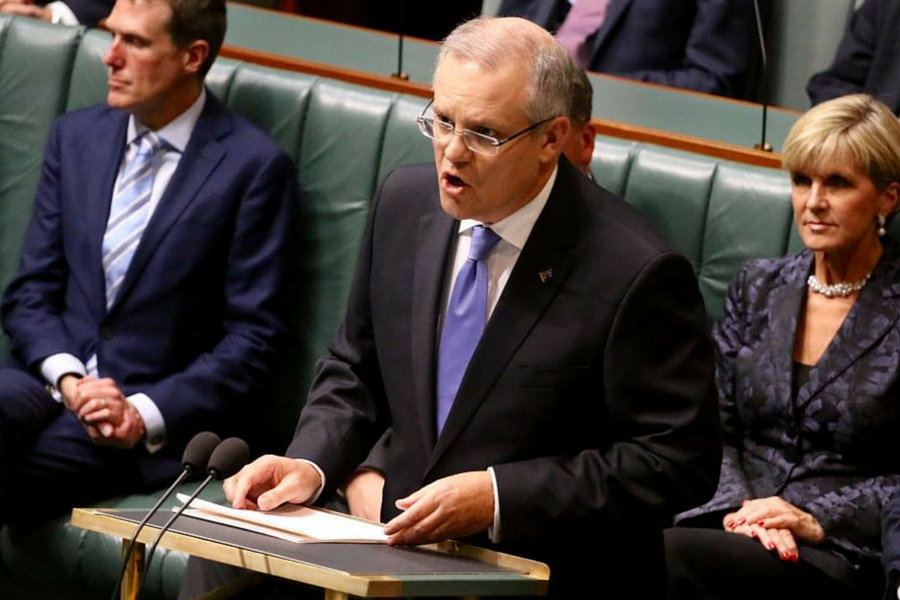Straight off the back of the Australian Securities and Investment Commission (ASIC) announcing it will be opening applications for crowd-sourced funding (CSF) licences at the end of this month, the Federal Government has today revealed a new legislative package that will allow private companies to access equity crowdfunding.
Under the new legislation, private companies will no longer be required to change their existing type to public in order to become eligible for the new CSF scheme, which previously ruled that only public unlisted businesses would be able to list online and sell fully paid ordinary shares.
Through CSF licensed intermediaries, which will be able to apply for their credentials from the 29th of September onwards, the new legislation broadens the scope for startups looking to raise funds through equity crowdfunding.
Set to introduce the reforms in parliament today, treasurer Scott Morrison will say the government wants to build upon its support for the local startup sector, by implementing new ways for startups to access funding, beyond “traditional sources”.
“Founders will be able to crowdfund while retaining the greater flexibility of the proprietary model. The extension will also increase the ability of retail investors to access early-stage investment opportunities,” said Morrison.
The restrictions around equity crowdsourcing had been a point of contention for a number within the industry as the previous regulations passed through the Senate earlier this year.
According to Jonny Wilkinson, cofounder of online equity crowdfunding platform Equitise, the new legislation marks an important step towards improving Australia’s early stage capital market.
“The opportunities for both SMEs and startups to tap into their networks and customers are unprecedented and will allow everyday investors the ability to support things they are passionate about,” said Wilkinson.
“The sweet spot will be established business-to-consumer businesses that are looking for growth capital, but as we have witnessed operating in New Zealand, it can be utilised by many companies that can articulate their value to people related to their business and other investors.”
Wilkinson added that the company had been working beside the government and other stakeholders to improve the regulatory framework for some time.
“It is great to finally have something to work with and we will be doing our best to get the greatest utility for companies and investors. We’ve been preparing for the last three years for this, so it is an exciting time that offers huge opportunity for privately owned businesses in Australia,” he said.
“We will continue to work with all stakeholders to improve the process and help put in place a regulatory setting that helps facilitate investment.”
To help protect investors, private companies looking to list through CSF intermediaries will be required to meet additional criteria, including having a minimum of two directors, and holding financial reporting in line with accounting standards.
Private companies will also be required to have audited financial statements once they raise above $3 million through equity crowdfunding, and have a set of restrictions on “related party transactions”.
Increasing the threshold before an audit from $1 million, according to Fintech Australia CEO Danielle Szetho, who had also contacted the government regarding reforms, is key to making equity crowdfunding a more viable option for startups.
“As our first submission outlined, the former $1 million threshold would have potentially made crowdfunding comparatively more expensive than business lending and venture capital raising, and in doing so significantly reduced its appeal as a fundraising option. We estimate a full audit could cost companies up to $20,000,” said Szetho.
“The requirement for a full audit to be undertaken for fundraising above $3 million is a more balanced approach which makes audit costs comparatively less expensive to the amount of money raised, while reflecting the need for greater disclosure at this funding level.
These restrictions will sit atop the existing regulatory framework for public companies, which caps the total raise over a 12 month period through crowdfunding at $5 million, and restrains companies with above $25 million in annual turnover and gross assets from listing.
Meanwhile, retail investors will be able to invest up to a maximum of $10,000 per company over a 12 month period.
Szetho said that Fintech Australia will work beside ASIC to continue to build out the regulatory framework for public companies, ahead of September 29th.
“We have raised concerns with ASIC about what we considered to be excessive ongoing reporting requirements for crowdfunding intermediaries. We also wanted to make sure that intermediaries could flexibly display easy-to-understand summary information to investors to aid with comprehension, including on websites, alongside more detailed required information,” she said.
“We’re hopeful that ASIC has taken our feedback on board.”
Image: Scott Morrison. Source: ABC.




















Trending
Daily startup news and insights, delivered to your inbox.